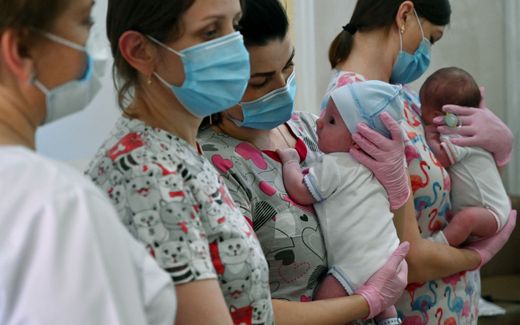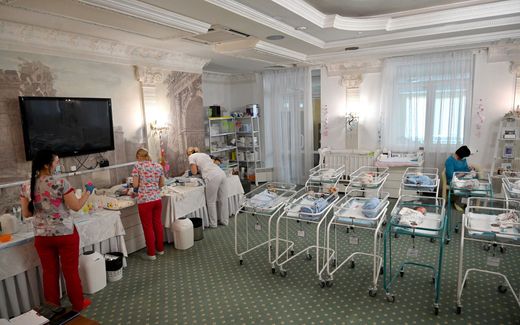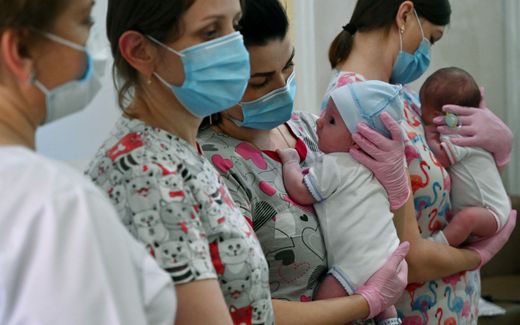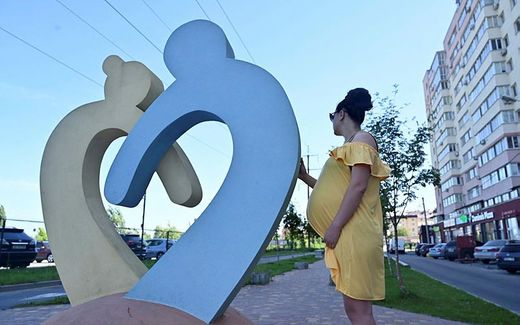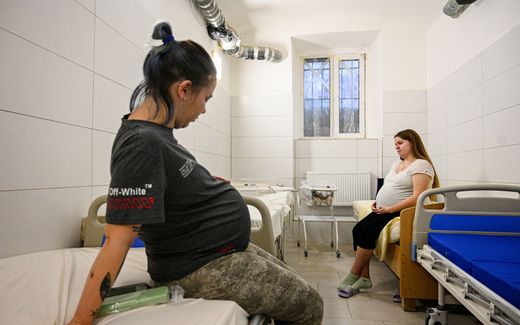Brain-dead women still to be used as womb
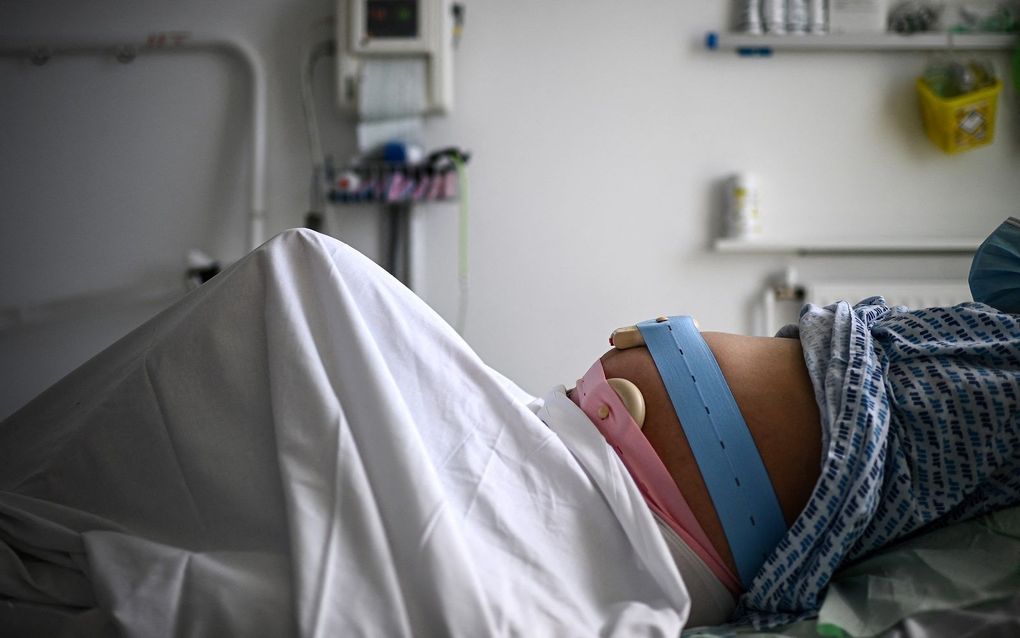
A pregnant woman lies on her bed with monitoring devices placed on her belly. Image not related to article. Photo AFP, Christophe Archambault
Northern Europe
Is using brain-dead women as surrogate mothers a good alternative to traditional surrogacy? A scientific paper exploring this idea went viral in the last week.
In a scientific paper published in November last year, the Norwegian philosopher Dr Anna Smajdor, who works at the University of Oslo, explores the possibilities for 'Whole body gestational donation'.
In her paper, she argues that "it seems plausible that some people would be prepared to consider donating their whole bodies for gestational purposes just as some people donate parts of their bodies for organ donation." According to Smajdor, "there is no obvious medical reason why initiating such pregnancies would not be possible." An embryo could be attached to the uturus of a woman who is in a coma. Medically speaking, it would be possible to then carry the child until birth.
The Norwegian professor suggests that "if we are happy to accept organ donation in general, the issues raised by whole-body gestational donation are differences of degree rather than substantive new concerns."
The bodies of brain-dead people solely depend on life support machines. They show no signs of consciousness or have any chance of recovering.
Storm
The paper was published months ago, and handled about an idea that Smajdor dropped in 2017, still it resulted in a small media storm. Several media outlets, including the British Daily Mail call the concept "outrageously controversial".
According to Smajdor, she became "the focus of an onslaught of abuse" on various social media platforms. "I was called a misogynist, a Nazi, an evil scientist, a science illiterate, a far-right extremist, a far-left extremist, and much more."
However, the philosopher argues, the paper was only designed to "explore some of these questions" regarding the possibilities around surrogacy. "This scenario evokes some disturbing images and associations. Yet this is very often the case with new developments in biomedical technology. It is easy to forget now how appalled people were at the idea of 'test tube babies'. The first surgeon to attempt a heart transplant in Japan was accused of murder. Using anaesthesia to lessen women's pain in childbirth was viewed as an ungodly transgression of the biblical decree that women bring forth children 'in labour and sorrow'."
Discomfort
Smajdor essentially argues that it is her job to look at controversial concepts. She also shares her personal views on the subject in an explanatory text: "My view as an ethicist is that the prospect of whole-body gestational donation is deeply disturbing. Yet discomfort alone is not enough to show that something is unethical. If it were, then many medical advances would be stopped in their tracks."
The Norwegian professor concludes that "amidst this sound and fury, it seems that it is more fun to embark on a witch hunt than to grapple seriously with questions about what happens to us if and when we become brain dead.
When the idea of Smajdor first surfaced in 2017, the Christian Norwegian daily Vårt Land asked some liberal politicians to comment on the subject. Right-wing politician Heidi Nordby Lunde, who is known for her liberal attitudes, is strongly critical: "I, who want to be an organ donor, assume that it will happen after I have passed away. I do not want my body to be artificially kept alive in order to be able to harvest a kidney when needed. In the same way, I don't think you can keep a woman alive artificially in order to use her body for surrogacy."
Related Articles


